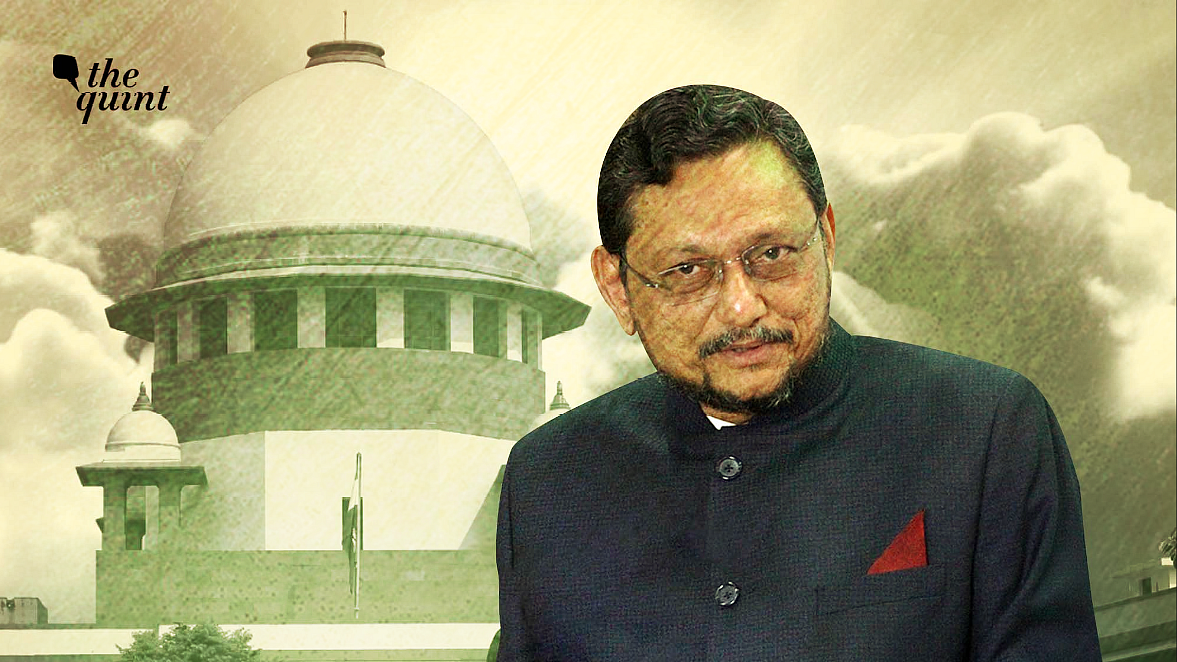
Collegium Deadlock & Gender Parity: A Look at CJI Bobde’s Legacy
The tenure of the 47th CJI, SA Bobde, was coloured with controversies, both political and legal.

advertisement
As 23 April 2021 comes to an end, also comes to an end the tenure of the 47th Chief Justice of India, Sharad Arvind Bobde. Similar to his predecessor, the fifteen-month tenure of Justice Bobde was coloured with controversies, primarily political.
And this surely should not come as a shocker to us, knowing that the people of India bestow much trust in the institution of the judiciary. They see the judiciary with the eyes of hope and assurance that their rights would find reflections in the elegant words of the Supreme Court, that the Supreme Court would be their kryptonite against the onslaught of the Superman(ic) Society. Therefore, gaining infamy is a part and parcel of the herculean task of being a Chief Justice of India.
The Collegium’s Deadlock
CJI Bobde would be the first Chief Justice of India in the history of the Supreme Court who would retire without making a single elevation to the Supreme Court of India, probably a legacy that he would not like to associate himself with. Erstwhile CJI HL Dattu comes closer to the legacy of CJI Bobde, as he only made a single elevation of Justice Amitava Roy in the Supreme Court during his tenure.
Currently serving as the Chief Justice at the Tripura High Court and bound to retire on 6 March 2022. Famous for his judicial integrity and knowledge, Justice Kureshi is one of the aspiring judges in line for elevation to the Supreme Court of India.
It is not for the first time that Justice Kureshi has been part of a debate. Back in 2019, the Collegium had recommended his name for the Chief Justice position of Madhya Pradesh High Court, however, after the Centre’s communication, the Collegium recalled its decision and appointed Justice Kureshi as the Chief Justice of Tripura High Court.
Similarly, judges Thottathil B Radhakrishnan (Calcutta High Court), Justice PR Ramachandra Menon (Chhattisgarh High Court), Justice Lingappa Narayana Swamy (Himachal Pradesh High Court), Justice Hima Kohli (Telangana High Court), and Raghvendra Singh Chauhan (Uttarakhand High Court) are bound to retire in 2021.
These meek scenarios also contrive a legal pressure onto the coming Chief Justice of India (Justice NV Ramana), knowing that the Supreme Court bench is already understaffed, with its current strength of 29 against the designated strength of 34 and five more judges to retire this year, it will be a hectic task for the coming CJI to end this drought of human resources. A sort of legacy which preferably many a judge would like to avoid.
On Gender Diversity
Another aspect of Justice Bobde’s tenure, which demands equal attention, is the alertness to the cause of gender diversity; off late, Justice Bobde has been very vocal about the cause of gender diversity in the Supreme Court.
An application filed by the Supreme Court Women lawyer’s Association sought direction from the Supreme Court to consider meritorious women lawyers practising in Supreme Court and the High Court judges’ position in High Court.
However, acknowledgement of the fact that there is a skewed gender ratio present in the Supreme Court by a retiring CJI probably will help in the cause of gender-parity in the near future. At present, there is only one sitting woman judge in the Supreme Court of India (Justice Indira Banerjee), and a total of only 8 women judges have served in the Supreme Court since 1950.
Pandemic, Controversy & Chief Justiceship
The pandemic certainly had an excruciating impact on civil life, as well as on the Supreme Court of India; it badly impacted the efficiency of the apex court. Thus, it cannot be denied that being a Master of Roster in times of a pandemic was not an easy task. While in 2019, the Supreme Court had adjudged around 1,370 cases, in 2020 that number came down to 697.
However, the legacy of Justice Bobde would be hued with three instances of judicial decision-making.
- First being the CAA petition; just after the CAA amendment had come into existence in December 2019, there were around 140 petitions filed for challenging its constitutionality; ironically, the matter was heard only thrice in 2020, with the decision still pending.
- Second, being the migrant issue, the lockdown-scare had forced lakhs of Indian migrants to undertake an arduous journey on foot or on bicycles to their native villages. Interestingly, several PILs were filed in Supreme Court asking it to take cognisance of the issue, but the PILs were rejected; it was only after the insurmountable pressure created by the legal fraternity as a whole that the Supreme Court took suo motu cognisance of this matter.
- Thirdly, the issue of the farm laws, unlike any other question of constitutionality of law, where the law is tested on the standards of Constitution, under this case the Supreme Court adopted an unprecedented move of staying the application of laws and appointing a committee to garner views on the law, this indeed raised various constitutional questions.
However, all in all it could be summed up that the tenure of Justice Bobde had its highs and its lows and surely certain factors which could be rectified, yet Justice Bobde surely would be remembered for laying down the path for his future brethren, especially on the issue of gender-parity.
(Ashit Kumar Srivastava is an Assistant Professor of Law at National Law University, Jabalpur, prior to this he has also worked as Assistant Professor of Law at National Law University, Odisha. His main area of research is Constitutional Law, Data Protection Law and South-Asian Constitutionalism.)
(At The Quint, we question everything. Play an active role in shaping our journalism by becoming a member today.)
- Access to all paywalled content on site
- Ad-free experience across The Quint
- Early previews of our Special Projects
Published: undefined